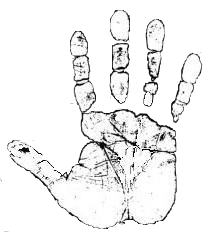MAKE AN APPOINTMENT TODAY!
Frozen Shoulder
Frozen shoulder or adhesive capsulitis is a condition caused by decreased shoulder range of motion arising from obscure or unknown causes. Initially, it is associated with shoulder pain that markedly decreases once the shoulder capsule adheres to the humeral head, which is called adhesive capsulitis. More commonly, this condition is referred to as “frozen shoulder”, due to patient’s guarding the painful shoulder and decreased shoulder movements. Diabetic patients and those whose shoulder has been immobilized for long periods of time after surgery, fractures or other injuries, are at an increased risk for developing adhesive capsulitis.
Frozen Shoulder Symptoms
Your shoulder may go through several stages as the scar tissue forms:
- Freezing: During the first stage, your shoulder may first ache and feel stiff, and then get very painful. This may last 3 to 8 months.
- Frozen: During the second stage, your shoulder may not hurt as much, but it keeps getting stiffer. This lasts about 4 to 6 months.
- Thawing: The final stage isn't very painful. Shoulder is very difficult to move, but after a while, the stiffness slowly goes away, and you can move your shoulder once again. Although you may not get the full movement of your shoulder back, you should be able to do many more activities, which may be painful at times. This typically takes from 6 months to 2 years.
Frozen Shoulder Diagnosis
If you have pain or stiffness in your shoulder when you try to do the following exercises, you may have adhesive capsulitis:
1. Reach up toward the sky with both arms
2. Extend your arms out straight in front of you
3. Place your arms on the sides of your body and raise them to above your head
4. Extend your arms out straight behind your back
Your orthopedic surgeon will obtain your detailed history including medical conditions, how the shoulder has been used, and whether there were any prior injuries is important. Physical exam is highly diagnostic, however, an x-ray may be taken to check for the other causes of the complaints such as arthritis, fracture, rotator cuff tears, or shoulder impingement. Shoulder MRI may be needed during planning for surgical treatment.
1. Reach up toward the sky with both arms
2. Extend your arms out straight in front of you
3. Place your arms on the sides of your body and raise them to above your head
4. Extend your arms out straight behind your back
Your orthopedic surgeon will obtain your detailed history including medical conditions, how the shoulder has been used, and whether there were any prior injuries is important. Physical exam is highly diagnostic, however, an x-ray may be taken to check for the other causes of the complaints such as arthritis, fracture, rotator cuff tears, or shoulder impingement. Shoulder MRI may be needed during planning for surgical treatment.
Frozen Shoulder Treatment
Many people who have frozen shoulder regain full use of their shoulder. Others may retain some stiffness and pain in the affected shoulder. When symptoms are severe or do not improve, surgery may be needed.
Initially, your orthopedic surgeon may send you to physical therapy to help with exercises, which are designed to loosen the scar tissue. Sometimes the exercises hurt, so your orthopedic surgeon may recommend something for the pain or to relax your muscles. Putting a heating pad or an ice pack on your shoulder for a few minutes and doing gentle warm up exercises with small shoulder movements prior to physical therapy may also help reduce pain. Don't forget to exercise your healthy shoulder as well, so that you can maintain the movement of the healthy shoulder.
Initially, your orthopedic surgeon may send you to physical therapy to help with exercises, which are designed to loosen the scar tissue. Sometimes the exercises hurt, so your orthopedic surgeon may recommend something for the pain or to relax your muscles. Putting a heating pad or an ice pack on your shoulder for a few minutes and doing gentle warm up exercises with small shoulder movements prior to physical therapy may also help reduce pain. Don't forget to exercise your healthy shoulder as well, so that you can maintain the movement of the healthy shoulder.
Disclaimer and Privacy
IZADIHAND.COM © 2011-2022 Kayvon David Izadi MD - All Rights Reserved
Webmaster
IZADIHAND.COM © 2011-2022 Kayvon David Izadi MD - All Rights Reserved
Webmaster
